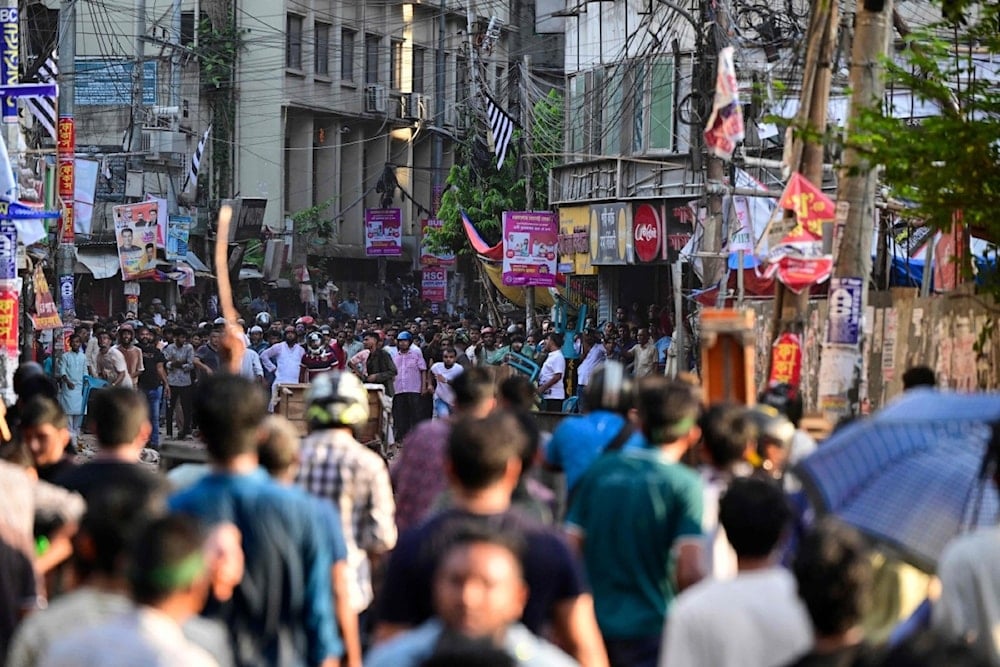Bangladesh undergoes nationwide shutdown amid anti-quota protests
Angered by high youth unemployment, students organized demonstrations demanding the abolition of the job quota that allocates 30% for families of veterans who served in the 1971 independence war against Pakistan.
-

Anti-quota protesters and students backing the ruling Awami League party clash in Dhaka on July 16, 2024. (AFP)
Bangladesh is heading towards a nationwide shutdown of businesses and transportation services from Thursday following violent student-led anti-quota protests that have resulted in six killed and hundreds injured.
“No establishments, except for hospitals and emergency services, will be open, and no vehicles are allowed on the roads,” said one of the student demonstration organizers, Asif Mahmud, in a statement on Wednesday, urging for all educational institutions to follow suit.
With a warning issued on Thursday stating that the "situation is extremely volatile," the US embassy in Dhaka announced its closure to the public. Meanwhile, the Indian High Commission halted all of its visa application sites in Bangladesh.
Why are students protesting?
Angered by high youth unemployment, with approximately 32 million people unable to find work or receive an education, students organized demonstrations demanding the abolition of the job quota that allocates 30% for families of veterans who served in the 1971 independence war against Pakistan.
Demonstrators have stated that the job quota ultimately favors supporters of Prime Minister Sheikh Hasina's party, excluding new job seekers from the labor force. As a result, they are also demanding the replacement of the current political system with a merit-based one.
Government jobs are highly coveted in Bangladesh and are now more pivotal as the country’s economy struggles to recover from the pandemic and years of strong growth. Essentially, the anti-quota protests were sparked last month but escalated to violence earlier this week, alongside Bangladesh’s main opposition party joining the demonstrations.
Videos from a private university in Dhaka circulating on social media depicted students clashing with police before advancing to block a major road. In some areas in Dhaka, members of the student wing of the ruling Awami League party attempted to remove demonstrators from the streets.
Prime Minister Hasina's role
Prime Minister Hasina has served for four consecutive terms following her re-election in January. Ultimately, the protests created various issues for the diplomat, whose government seeking funds from creditors and the International Monetary Fund (IMF) to improve the nation’s foreign exchange reserves.
The politician asked student protestors in a televised speech on Wednesday to have trust in the legal system where the quota system is being debated while pledging to prosecute the “criminals” responsible for the invocation of violence. In addition, she highlighted that a judicial committee will be assembled to probe the “anarchy.”
Due to the nationwide shutdown, the government posted parliamentary troops and the police together across the country in an attempt to tighten security.

 3 Min Read
3 Min Read








